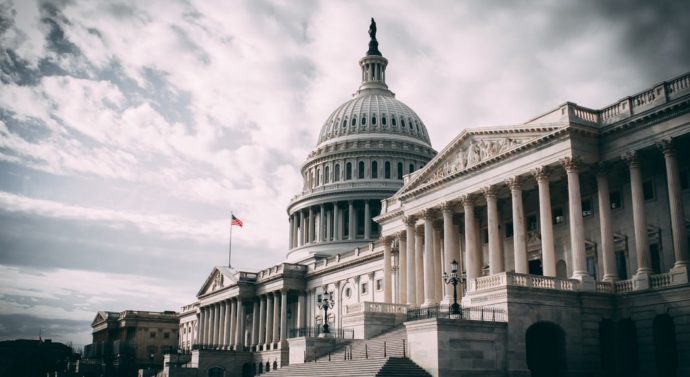
Be up-to-date on legislation: A run-down on bills that are currently moving to the Missouri House
News February 21, 2020, Comments Off 235The second session of the 100th General Assembly of the Missouri House of Representatives is underway. As legislators enter the second month of 2020, many have ambitions to pass legislation of their own, including several from Springfield.
Here is just a tiny list of bills currently moving through the Missouri House as of Feb. 18, 2020.
The Missouri Healthcare Price Transparency Act
Rep. Steve Helms (R), representing District 135 in eastern Springfield, is an insurance broker concerned with health care. There are seven bills dealing with the topic. One bill, HB 1415, has the potential to upset the health care industry by mandating that providers show people how much services cost upfront.
Helms has stated that the goal of the legislation is to “lower costs with action at the state level.”
Last year, Helms tried essentially the same thing, but met with opposition from lobbyists for the health care industry and other state lawmakers, including some from his own party. Speaking against Helm’s previous attempt, HB 232, Rob Monsees of the Missouri Hospital Association cited a 2016 law that already allows patients to get cost estimates if they have treatment plans from their doctors. Fellow Republicans Suzie Pollock, Lebanon, and Jim Neely, Cameron, said in committee that they were supportive of the idea of free market health care but saw it as unrealistic due to the unpredictability of patient needs.

Photo via unsplash.com
When the Trump administration tried to require hospitals to disclose discounted prices that they gave insurers for procedures, hospital groups like the American Hospital Association sued. They claimed that the burden to provide such information is extensive and violates First Amendment rights.
But that hasn’t stopped Helms from trying again.
“It’s time we charted a new policy course built on principles of common-sense transparency,” he stated.
The bill was heard in the House on Jan. 29. It was referred to the House Insurance Policy committee on Jan. 9.
Parties unite to raise money for early childhood education
Democrat Crystal Quade from Springfield’s 132nd District has filed three bills relating to children’s issues from MO HealthNet benefits to a proposed education tax.
One, HB 1480, would allow Greene County voters to approve or disapprove of raising the local sales tax to pay for early childhood education. The tax increase would be no higher than a quarter of a percent. The proposed raise would confront voters in Greene and other counties only if passed at a general election.

Photo via pixabay.com
HB 1480 is almost identical to an ongoing attempt by Sen. Bob Dixon, R-Springfield, who, since 2012, has been filing the educational sales tax as an amendment to another bill. In 2017, many conservative colleagues in the Senate loudly criticized the effort to raise money for early childhood investment. Whether or not they remain opposed to tax increases remains to be seen.
Dixon was relying on Rep. Kevin Austin (R) from District 136 to carry the bill through the House, but Austin retired from state politics in 2018 to serve as the Greene County Drug Court Commissioner.
Quade’s version of the bill was filed in Dec. 2019.
The City of Springfield has taken an official stance recognizing the necessity of investing in quality early childhood care.
According to the City of Springfield’s website, the community has “a long journey towards tackling some of Springfield’s toughest systemic issues, such as poverty and child abuse and neglect.”
In 2016, a study by the Mayor’s Commission for Children revealed that in Springfield, children who qualified for Free and Reduced Lunch ranked notably less “prepared” for kindergarten. As the city’s website states: “What we can deduce from this is that low-income students, whose families can’t afford preschool, are disproportionately the ones who are unprepared for kindergarten and who are starting behind.”
Poverty and the “achievement gap,” which suggests that lower income negatively affects educational success, are some of the toughest systematic challenges to childhood development in Springfield.
“Without access to early childhood programs, low-income students start behind their wealthier peers and may never be able to catch up, resulting in repeated years in school (which are a cost to the family and society), higher dropout rates, and lower educational and job attainment, thereby allowing the cycle of poverty to perpetuate and causing these members of society to be more costly (i.e. reliance on welfare, Medicare and Medicaid, food stamps, and contributing less back in taxes.),” reads the Mayor’s Commission for Children’s online statement on early childhood.
HB 1480 could be the opportunity for Greene County Democrats and Republicans to support families financially as well as directly investing into the success of future generations.
Missouri’s response to California’s Fair Pay to Play Act
Last December, Rep. Nick Schroer, R-O’Fallon, filed a bill that would allow student athletes to be paid for promotional media like commercials and recruitment materials, as well as allowing student athletes to enter into contracts with representation by an attorney, athlete agent or financial advisor.
The bill, HB 1564, came months after California passed similar legislation. The NCAA Board of Governors unanimously voted in Oct. 2019 to allow student athletes to benefit financially from the use of their names, images and likenesses.
Rep. Wes Rogers, D-Kansas City, also supports the move.
“We’re just saying they can be paid for the use of their name, image and likeness, which regular students can already do,” Rogers said.
Rogers explained that his goal is allow the NCAA, colleges and Congress to hammer out details that will apply on a nationwide level.
“The NCAA and the feds are going to be the ones that have to fix it, but my goal is to be the catalyst to get it going.”
The bill was referred to the House General Laws committee in late Jan. The bill is not currently on a House calendar and no hearing is scheduled.
Daylight Savings as New Standard Time Pact
Sometimes, legislation can be more light-hearted. Rep. Tim Remole, a Republican representing Macon County and parts of Linn and Randolph counties in District 6, read HB 1356 on Jan. 8, which would establish an open agreement between Missouri and 19 other states to make daylight savings permanent, ending decades of turning clocks back and forward twice a year.

Photo via pixabay.com
The idea is supported by Missouri House Speaker Elijah Haahr, R-Springfield, who called it “an idea with some merit.”
Haahr continued: “The idea that as you travel across the country you have to change your watches and clocks, it seems like a relic of a bygone era.”
The pact was referred to the House Downsizing State Government committee on Jan. 9 and is currently not scheduled for a hearing or on a House calendar.
Written by Forest Swisher.